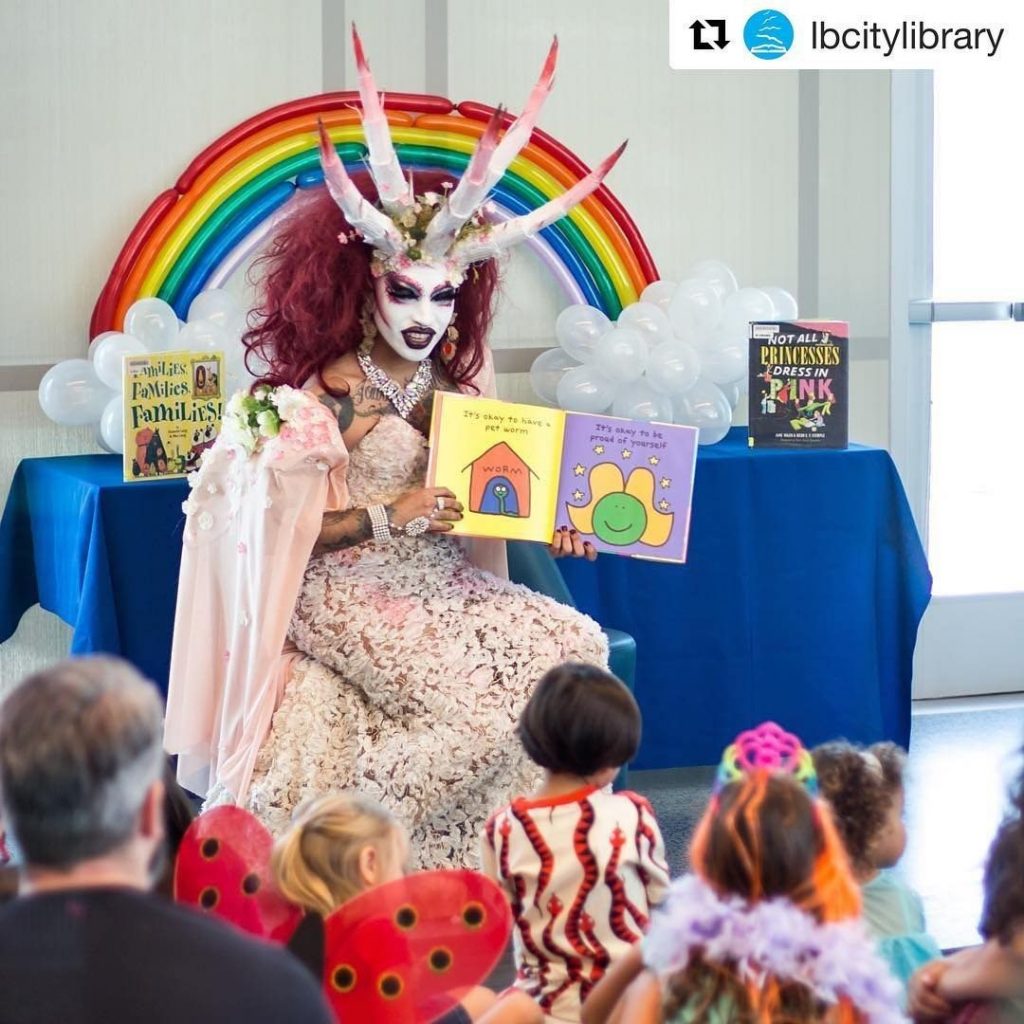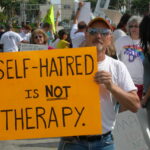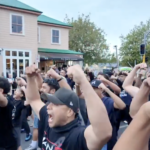By Jonathon Van Maren
Back in December, I wrote a column explaining how the LGBT movement’s massive push to stomp out all dissent to their agenda—especially the attempts to force a lightning-fast acceptance of transgenderism—was potentially having the opposite effect. Many ordinary liberals who had no problem with gay marriage are increasingly unhappy with the idea that anyone who disputes the idea that a biological man can get pregnant is a “transphobe,” or that a baker who doesn’t want to use his artistry to celebrate a gay wedding should get dragged into court and hounded out of business by hateful activists. In fact, the Witherspoon Institute asked a blunt question this week: “Is America running out of patience with LGBT activism?”
GLAAD, a leading gay advocacy outfit, released a new report showing that positive attitudes toward homosexuality and people who identify as LGBT have decreased a bit over the last few years. They sum up their findings rather starkly: “This year’s survey reflects a decline with people’s comfort year-over-year in every LGBTQ situation…”
The organization shows great concern over what they describe as the “significant decline in overall comfort and acceptance of LGBTQ people.” Their survey results indicate, at least, that indifference toward the LGBT community and its political efforts is increasing. At most, support for gay causes is diminishing. The report’s introduction, written by GLAAD’s President Sarah Kate Ellis, interprets the findings with dramatic, fearful flair. “This year,” she writes, “the acceptance pendulum abruptly stopped and swung in the opposite direction.”
The truth is not as dramatic as GLAAD makes it out to be. The changes they track in attitudes do indicate a less passionate embrace of alternative sexual behaviors and gender identities this year than in years past, but not markedly so. Most advocacy groups would not be terribly concerned about such a shift. But to GLAAD, even indifference—much less disapproval—is a cause for great concern. If celebration and affirmation of LGBT causes are not increasing, bigotry must be on the rise. There is no middle ground.
Now of course, GLAAD immediately claimed that this “decline in acceptance” was directly due to the presidency of Donald Trump, which is both amusing and stupid. People who were once supportive of the LGBT political agenda withdrawing their support—or at least becoming sick of the ever-strident calls to action several years after gay marriage was solemnized by the Supreme Court of the United States—are not suddenly reversing course because Donald Trump has been making a persuasive case to the nation that gay rights have gone too far. The reverse is true: People are getting sick of seeing good, ordinary people vilified by a movement that has accomplished all its goals but still needs to pretend that oppression is everywhere in order to justify their existence. As the Witherspoon Institute points out, even some gay marriage activists think this could be the case:
Andrew Sullivan, writing about the GLAAD report in New York magazine, warns that no one “seems to notice the profound shift in the tone and substance of advocacy for gay equality in recent years, and the radicalization of the movement’s ideology and rhetoric.” This aggressive radicalization “is surely having an impact,” he holds. How could it not, Sullivan asks, when his movement’s public rhetoric shifted from “live and let live” to the thunderously demonizing “agree with us in every regard or be a bigot”?
If you don’t believe that Caitlyn Jenner is a woman, you’re the worst kind of hateful. If you think a child deserves a mother and a father, you are a bigot. If you think a gender-dysphoric boy should not be treated as a girl, you’re evil. If you think a man should use the men’s restroom, regardless of what sex he thinks he is, you are discriminatory. If you think parents’ desire to get their children counseling help for their same-sex attraction is okay, you’re very dangerous. If your church teaches that homosexual sexual activity is wrong, your church is bigoted. You must agree with every part of LGBT values or be slimed. This dictatorial absolutism is not sitting well with many Americans.
The crown jewel of the gay movement’s efforts—the Supreme Court’s degendering of marriage—was sold to the heterosexual world on the question, “How does someone else’s gay marriage affect me?” Most people unquestioningly accepted that it wouldn’t.
But they are learning through real-life events that gay marriage does indeed affect them—or, at least, people very much like them. A great many Americans figured they don’t have to like gay marriage, but why should they stand in the way of Jim and Frank across the street marrying? You live your life, they reasoned, and I’ll live mine. But the equation has turned out to be much more complicated. Jim and Frank needed “marriage equality” to feel like full citizens, we were told. Who doesn’t want Jim and Frank to feel like full citizens? I do. But now they are learning that “marriage equality” is not enough. They must also agree to any and all demands from the LGBT powers, regardless of their personal religious or moral beliefs—or be branded with a Scarlet B.
Sullivan and others in his community are merely noting what many of us in the effort to prevent the degendering of marriage predicted would happen. From surprisingly fast and unexpected victory can come great hubris and the desire to utterly crush one’s opponents. Such overreach, in turn, provokes a backlash from those who once supported the victor’s cause.
I spent the first few pages of Chapter 8 (“Who Killed Religious Freedom?”) in my book The Culture War simply detailing the situations of bakers, florists, pastors, and business owners who had been bullied, blackballed, and bankrupted by gay activists determined to force them to collaborate with the LGBT movement or celebrate their events. I know a lot of people who support gay marriage, and virtually all of them think that these tactics are disgusting and unnecessary. In fact, many gay people who are thrilled with the legalization of gay marriage think that it is repulsive to bully some little farm family into renting out their property for a gay wedding if it conflicts with their conscience.
The LGBT movement sold North America on gay marriage by promising them a new social contract: We get marriage and are now equal, and we’ll leave you alone. The opposite has turned out to be true. They have gay marriage, and now they want everything else. There is no new gender ideology or sexual behavior that you will be permitted to stroll past with genuflection, and if you try—you’ll be tarred as a bigot. It turns out that many, many people are sick and tired of being called names—and are instead deciding that they’ve had quite enough of the LGBTQ movement for awhile.
__________________________________________________________________
For anyone interested, my book on The Culture War, which analyzes the journey our culture has taken from the way it was to the way it is and examines the Sexual Revolution, hook-up culture, the rise of the porn plague, abortion, commodity culture, euthanasia, and the gay rights movement, is available for sale here.








